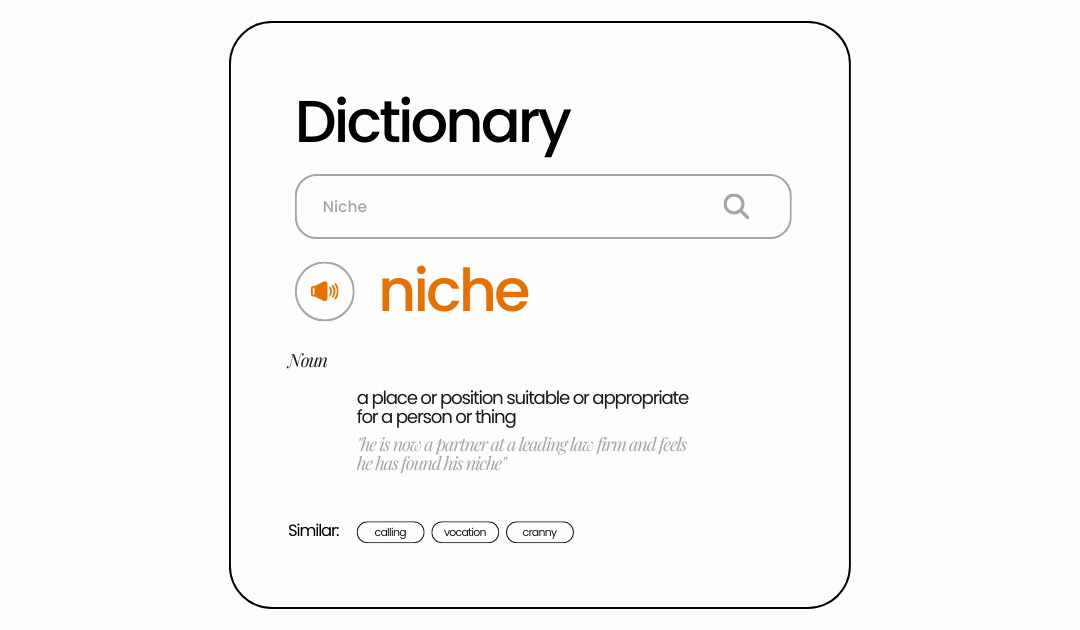niche [ nich, neesh ]
noun ; a place or position suitable or appropriate for a person or thing:
to find one’s niche in the business world
Focus on defining your niche in the marketplace as you scale. Previously, the competition didn’t even know who you were. But now, you are making a name for yourself and challenging your competitors’ stake in the market. Identify your niche to position your brand for success.
Why is Finding Your Business Niche Important?
What is your competitive advantage? Your business niche is what distinguishes your company or organization from the competition and what your audience knows you for in the market.
Niching down has its benefits.
🎯 Establishing brand loyalty and trust – Serving a niche market helps you gain more credibility and become the go-to brand for your audience.
🎯 Increased visibility to potential target audience – Niche marketing not only leads to more customers but can also improve your online presence.
🎯 Minimizing competition – By claiming a niche, you automatically differentiate yourself from companies seeking the mass market. Instead of competing with big names, you can focus on delivering an exceptional product and service.
🎯 Quality over quantity – Targeting a more specific consumer may mean a smaller audience, but it also means you get to focus on quality engagements and nurturing your client relationships.
How To Carve Out Your Industry Niche
1. Find your target audience. In order to successfully market your brand, you need to identify who it is that you are trying to appeal to. Defining your audience by the nitty-gritty details (i.e., age, gender, income, education level, geographic location, their pain points) allows you to hone in on who your customers are.
2. Identify your x-factor. Recognize what makes you different. Analyze your target audience and find an unmet need. Focus on one service, product or audience. Offer a service/product your audience needs but does not yet have or is not happy with the current option in the market.
3. Defining Your Brand Tone and Voice. The tone and personality of a brand are all part of the experience you create for customers. It’s not just the tagline or the logo that creates a connection with your audience. It’s how you tell your story and how that sounds to others. Want to find your brand’s voice? We can help!
4. Build a brand strategy. Branding is clearly communicating who you are and what you offer to your target audience. You can’t talk to every single customer, but your brand can (and does!). This thinking is especially important when a brand scales and more people get involved in the process. A strategy ensures the whole team is on the same page.
5. Stay authentic. Enough said! Stay on-brand. Be you.
Niche down to a specific audience persona and their needs. Ask yourself, “What is the one thing we can be known for that nobody else is doing but that our people are demanding?” What is your target audience searching high and low for? Frustrated that this solution does not exist? Be so good at providing the solution that it’s clear to the market, your brand is the only answer. By launching with this positioning and becoming wildly successful at that one thing, you can then expand your niche when your die-hard fans are asking for more.

